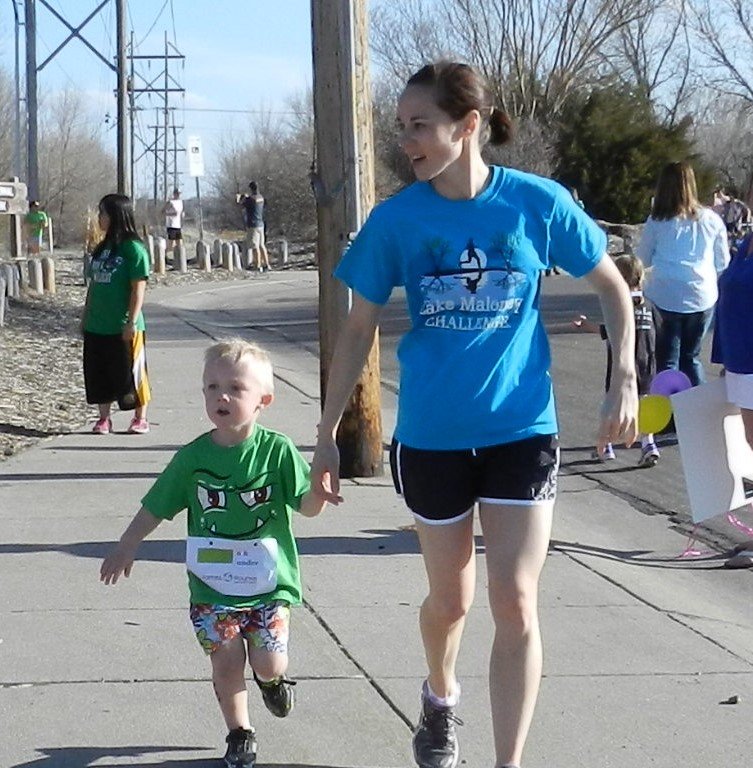Three Miles an Hour
“Fast” is such a funny little word. Sometimes an adjective, sometimes an adverb. Sometimes it’s a simple four letters, sometimes, it’s a four-letter word. We have the strangest relationship to it. It measures the success of our athletic endeavors and more and more, it seems, it hovers above and defines the way we live. Whether we run, walk, swim or cycle, at least for a particular season in our lives, we want to get fast, be fast, stay fast. Races serve a multitude of purposes, but in their most basic form, a race is a test of how fast one can go. The goal, win, place, or show is to try to cover a specified distance in the least amount of time possible.
The beautiful thing about a race is that there is more than one way to win. The talented break the tape, but if we run or walk or ride or swim (or all the above) faster for that distance than we have ever done it before, that is a kind of winning. Some days are just hard, so just showing up to support a race through participation when you’d rather stay in bed is winning. As athletes, a personal record, “PR” is always the Holy Grail we seek on our quest to keep defining and redefining what it means to be fast at any point in our lives. “Fast” is certainly comparative, but it is also personal. What is fast when you are 60 is not fast when you were 16. The concept of fast changes as we change, requiring us to accept an inverse relationship with “fast.” As we gain years, we often lose seconds, then minutes. The wise among us learn to accept the decline with grace and realize that we are still gaining the good that comes from exercise and social connection.
While “fast” is a good thing in running, let’s say, it becomes an unruly beast as it defines much of modern life. The oppressiveness of the hustle and hurry culture is real. There must be a million coffee mugs that remind us “it goes too fast.” The “it” of course, is time. If we don’t have the coffee mug (or maybe a fun little t-shirt), our parents, grandparents and the other elders in our lives are never afraid to speak that phrase as words of caution. It is a reminder that comes from a place of love. If you’ve lived long enough, you know that it is one of the most perplexing mysteries of life, and a living irony of being human. The reasoning part of our brain knows that a second is a second, a minute, a minute and so on. We know that a day has 24 hours, and a year has 365 days. Why then, as we watch our kids drive away to college, does it seem that it was just yesterday that they started kindergarten? How can it be that the baby girl born, it seems, yesterday, is now walking down the aisle on the arm of an adoring, yet slightly confused dad, wondering where his little girl went? Perhaps it is the little athlete a parent fosters today suddenly transformed into a high school athlete, it seems, overnight. For me, wasn’t it just yesterday that I was ruminating on how to use a race to bring people together in ways that weren’t so focused on “fast,” but focused on showing up and participating? The “fastness” of time is and will always be a perplexing thing and evidence that our brains work in mysterious ways.
I’ve been thinking about something else that has felt like a mystery for a long time. Not something mysterious in the way our brains are mysterious. That is definitely above my pay grade. Rather, mysterious as in “What makes the PRFS the PRFS?” As my own pace continues to dwindle, I’ve been thinking a great deal about what it really means when I tell athletes to “embrace your pace.” “What am I actually saying,” I wonder. I’ve been thinking about this mystery and its relationship to fast…and to slow. The pace we run and the pace of life. I feel like I have figured out a partial answer. The Platte River Fitness Series, my standard explanation begins, is not a race series. It is a series of races intended to make the people who organize them better and stronger and the people who participate in them better and stronger. It is a series of races where people try to go fast, or faster for them, but if that is all it was, I truly believe we would not have lasted 23 years.
People race to improve the pace that carries them from start to finish, but the PRFS is still around because those same people, before, sometimes during, and always after, embrace a different kind of pace. Kosuke Koyama is a Japanese theologian who thinks deeply about pace in relationship to the Divine. In Koyama’s words, “love has its speed…It is a different kind of speed from the technological speed to which we are accustomed. It goes on in the depth of our life, whether we notice it or not, at three miles an hour.” This is the average speed for most people not power walking in a race. “It is the speed we walk,” the theology goes, “and therefore the speed that the love of God walks.” Love moves at three miles an hour.
On their feet, most athletes in the PRFS move faster than three miles an hour. There are a few for whom three miles an hour is the pace they embrace. We have the ten mile an hour-plus super stars. Many athletes land between six and eight miles an hour, and a good group of you comes in around four miles an hour. What each of you has, however, is a second pace, not measured by a stopwatch, but rather, measured by the heart. We have a community of athletes with the wisdom to know when it is time to slow down. You may race at 6 miles an hour, but as the athletes at our races trickle in to grab their packets, nervously awaiting the start so they can go fast, during the race in the cheers and high-fives, and most profoundly, after the racers have finished and you gather as fellow travelers with stories to tell, your slow pace becomes visible. I have been a witness to the myriad of ways you all slow down…for each other. You may run fast, but what makes the PRFS work is your willingness as a community to slow down in the support of each other, to three miles an hour, the pace of love. What I also want you to know is that when people join us for the first time, or first few times, they see it too. There is something unique and so lovely that happens at a PRFS race, the times may be fast, or they may be slow, the years of racing seem to pass so quickly, but we continue to build our community at three miles an hour, the pace of love.

